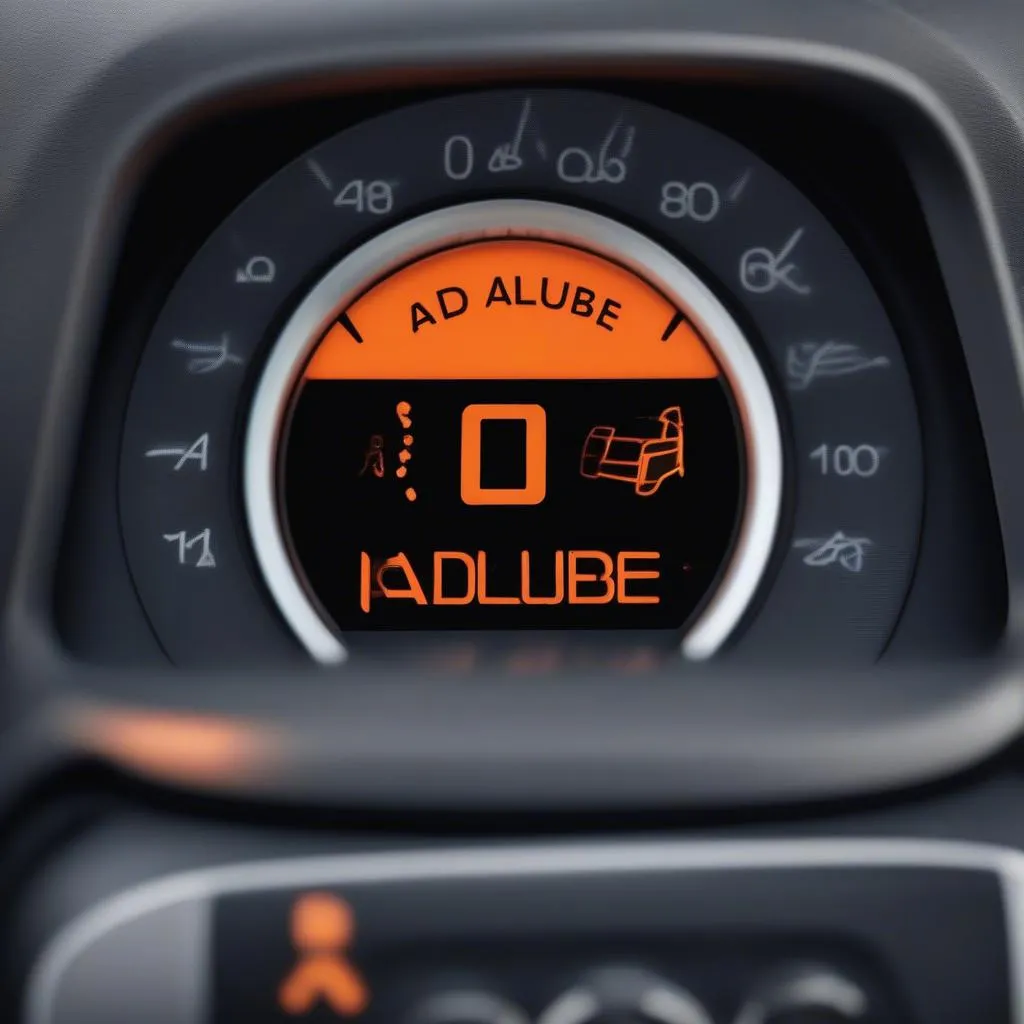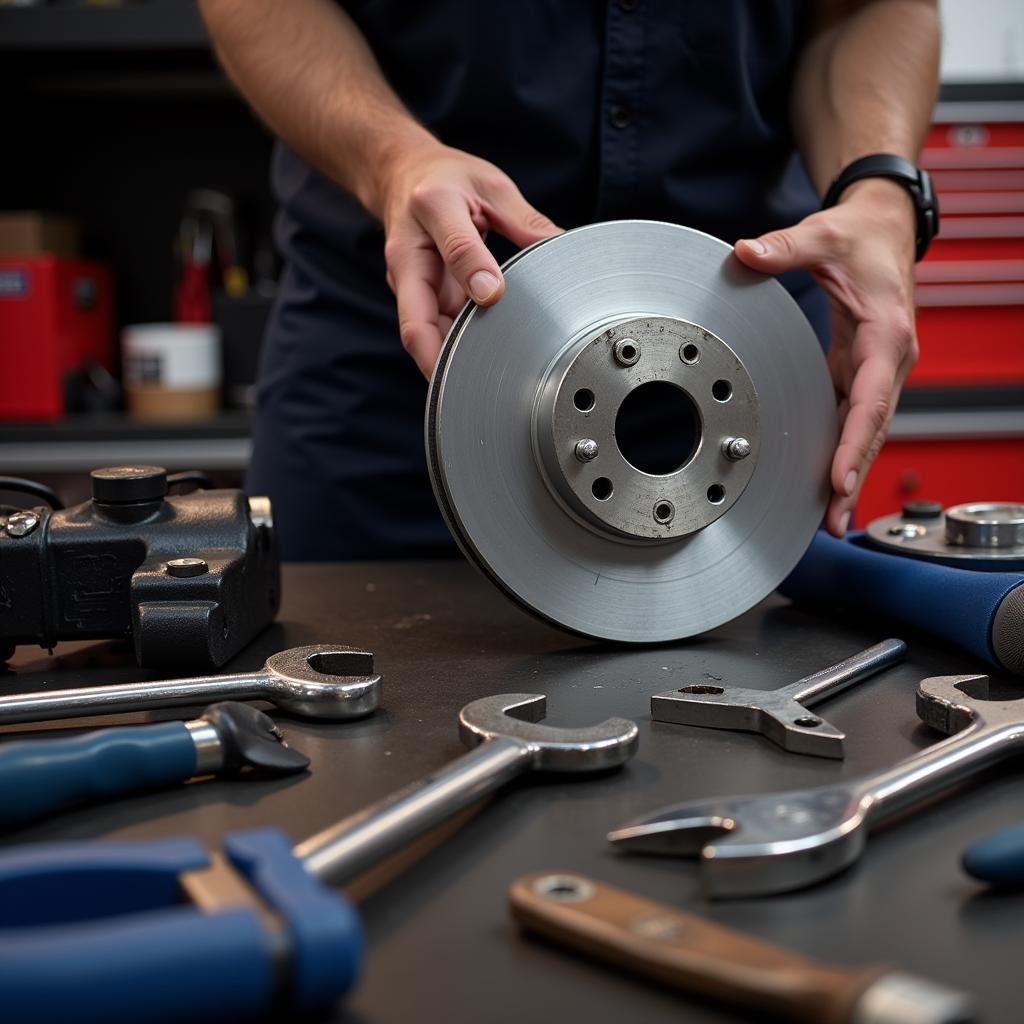The brake warning light on your dashboard is a crucial safety feature, and when it illuminates in your 2001 BMW 740i, it’s essential to address the issue promptly. This light could indicate a range of problems, from low brake fluid to more serious issues with your braking system. Ignoring it could compromise your safety and lead to costly repairs down the line.
Common Causes of a Brake Warning Light
Several factors can trigger the brake warning light in your 2001 BMW 740i. Here’s a breakdown of the most common culprits:
Low Brake Fluid
One of the most frequent reasons for the brake warning light is low brake fluid. Brake fluid is the lifeblood of your car’s hydraulic braking system. Over time, brake pads wear down, and the calipers need more fluid to engage the brakes effectively. If the fluid level drops too low, the warning light will activate.
Worn Brake Pads
Brake pads are designed to wear down gradually with use. When they reach a certain thickness, a wear indicator embedded in the pad will contact the rotor, triggering the brake warning light. It’s a clear signal that it’s time for a brake pad replacement.
Faulty Brake Sensor
Your BMW 740i is equipped with brake pad wear sensors that monitor the thickness of your brake pads. If a sensor malfunctions or becomes damaged, it can send a false signal to the dashboard, illuminating the brake warning light even if your brake pads are in good condition.
ABS Issues
Your car’s Anti-lock Braking System (ABS) is a critical safety feature that prevents wheel lockup during hard braking. If the ABS module detects a fault within the system, it can trigger the brake warning light. This could be due to a faulty wheel speed sensor, a problem with the ABS control module, or an issue with the hydraulic unit.
Troubleshooting the Brake Warning Light
Before rushing to a mechanic, there are a few things you can check yourself:
-
Check the Brake Fluid Level: This is the easiest and most accessible check. Locate the brake fluid reservoir in your engine bay and inspect the fluid level. If it’s below the minimum mark, top it up with the correct DOT specification brake fluid as recommended in your owner’s manual.
-
Inspect the Brake Pads: If you’re comfortable with basic car maintenance, you can visually inspect your brake pads for wear. Look through the spaces between the wheel spokes for the brake caliper and pads. If the pad material is less than ¼ inch thick, it’s likely time for a replacement.
When to Seek Professional Help
While checking the brake fluid and visually inspecting the pads can help, it’s crucial to remember that diagnosing and repairing brake systems often requires specialized tools and knowledge.
Here are some instances where you should seek professional assistance:
- The brake warning light remains illuminated even after topping up the brake fluid.
- You notice a soft or spongy brake pedal feel.
- You hear grinding or squealing noises when applying the brakes.
- Your car pulls to one side when braking.
- You suspect an issue with your ABS system.
Remote Diagnostics and Software Solutions
In today’s technologically advanced world, remote diagnostics and software solutions play a significant role in car repair. Certified technicians can access your car’s computer remotely, diagnose problems, and even perform software updates or programming to address certain issues.
If you suspect a more complex issue with your BMW 740i’s braking system, consider seeking assistance from a reputable service provider offering remote diagnostics and software solutions. They can often identify problems quickly and accurately, potentially saving you time and money on unnecessary repairs.
Conclusion
Addressing the brake warning light in your 2001 BMW 740i should be a top priority. By understanding the common causes and following the troubleshooting tips outlined above, you can take the necessary steps to ensure your safety and keep your BMW on the road. Remember, when in doubt, consult a qualified mechanic, especially if you suspect a more complex issue.


